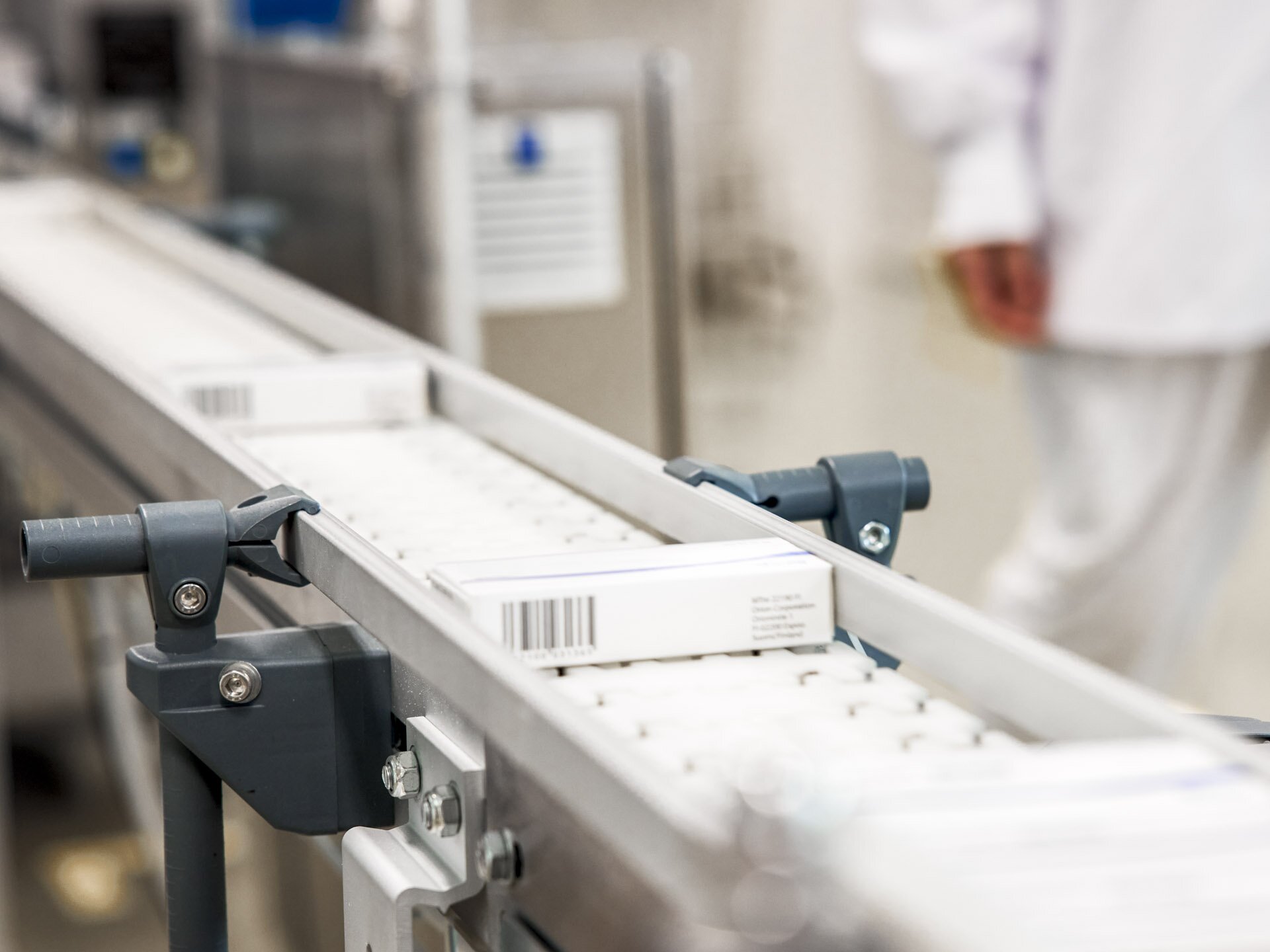The three-year Initial Vocational Qualification in the Pharmaceutical Industry at Stadin AO, Helsinki Vocational College and Adult Institute, includes three periods of on-the-job training, two of which Olli Kaivola completed at Orion’s tablet manufacturing in Espoo. In his first trainee period, Olli worked in tablet selection and in the second he supervised the tableting sessions together with his workplace supervisor.
“After my traineeship, I was asked whether I would like to continue as a process operator in the tablet manufacturing on a permanent basis. I did not need to be asked twice,” says Kaivola.
Shortly afterwards, he signed an employment contract, pulled on the cleanroom equipment necessary for tablet production and started his induction programme.
Induction is monitored with competence tests
Kaivola has been a process operator for six months now. His induction period is still ongoing, but compared to the training period, the amount of responsibility has grown considerably. As a trainee, Olli was not allowed to do production work on his own, but nowadays he manages the tableting processes independently and carries out the related preparation and cleaning work.
“I still have several competence tests to complete, one of which will test my skills in changing the product strength in the tableting process, for example. If two different strengths of the same product are run consecutively, only certain parts of the tableting machine need to be replaced in the process. In my competence test, I need to show that I know what to do in that situation,” Kaivola explains.
Hundreds of different tablet preparations are produced in Espoo, and Kaivola may be involved in producing almost all of them during his shifts.
“My job involves operating and supervising the tableting machine to ensure that the mass is produced into tablets that are precisely the right size, shape and strength. I also investigate any error situations and carry out preparations for tableting, such as cleaning and assembly of the tableting machine.”
Accuracy and diligence ensure the quality of medicines
The work of a process operator requires precision, diligence and accuracy – there is no room for carelessness in this job. The teams do not mind this precise approach – quite the opposite, everyone wants to play their part in ensuring the high quality of the medicines.
“Every step of the process must be done precisely and by following instructions to the letter, so that patients can rely on the safety of our medicines. Patience is also needed: Sometimes a tableting run will last a whole shift, but you still need to keep a close eye on the process,” Kaivola says.
The number of times clothing needs to be changed on the production floor surprised even Kaivola: the tablet manufacturing has different dress codes depending on the purpose of the space. For example, in the production facility’s corridor, a jacket, trousers and a cap are sufficient, but in the cleanest areas, full overalls, a double layer of disposable gloves, sleeve protectors and fresh air helmets must be worn.
“This is how we protect medicines from the workers, and the workers from the medicines. By changing our clothes, we also prevent cross-contamination, i.e. the transfer of unwanted substances from one medicine to another. Sometimes I have to change my clothes up to twenty times during a working day. Purity is of utmost importance in pharmaceutical production,” says Kaivola.
Purpose of the work is human well-being
“In the tablet manufacturing in Espoo, we work a three-shift pattern over a period of five days during the week: during the morning-shift week you work from 7 am to 3 pm, during the evening-shift week from 3 pm to 11 pm and during the night-shift week from 11 pm to 7 am. A tableting process for a pharmaceutical batch can last from a run of a few hours to a couple of days. During the summer stoppage in July, the machines also get a break when they undergo maintenance.”
“Before, when I used to go to the pharmacy, I never thought about how many products were made by Orion, but there is a huge range of products, possibly even thousands of them. In addition, new ones are developed and existing ones improved.”
Kaivola was originally attracted to college to become a pharmaceutical technician by the growing and evolving pharmaceutical industry. Kaivola believes he made the right choice:
“It is rewarding to do something for a living that contributes to the well-being of other people. My work ensures that pharmacies always have medicines available to provide patients with the treatment they need.”
The three best aspects at Orion:
- Employee benefits: Orion takes good care of its employees. You can eat delicious food at the personnel restaurants, there is excellent occupational health care, and the workspaces are practical and comfortable.
- Colleagues: Everyone is friendly and helpful. I was immediately accepted as part of the team when I first started as a trainee and then went on to be a permanent employee.
- Opportunities to influence: Employees’ feedback and development suggestions are listened to and considered together. If the suggestions are good in terms of the big picture, they are put into practice.











